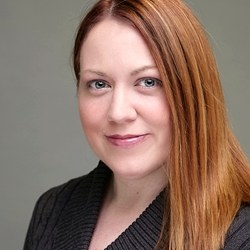Smart brands invest in understanding their audience. They purchase expensive third-party research reports, conduct focus groups and administer surveys, and ask sales and customer service teams to share insights into the mind of their customers.
Don't miss a MarketingProfs podcast, subscribe to our free newsletter!
But how committed are you to understanding your audience? Would you move in with them? Because Martin Lindstrom would! (Seriously.)
Martin spends 300 nights a year in strangers' homes, observing their behavior in detail in order to discern their habits and desires—clues to refining or creating the next multimillion-dollar product. He's stayed in swanky London neighborhoods, a Brazilian favela, and every place in between!
Huge global brands, including Nestle, the Coca-Cola Company, and Red Bull, have hired branding expert Martin Lindstrom to figure out what customers want (and what they will want in the future). Forget everything computer databases, surveys, and focus groups: Martin prefers to observe consumers in their natural habitat—their home.
He's the best-selling author of six branding books, including Buyology: The Truth and Lies About Why We Buy, BRANDsense, and Brandwashed.
I invited Martin to Marketing Smarts to talk about his latest book, Small Data: The Tiny Clues that Uncover Huge Trends.
The book is a fascinating read that details how Martin's in-depth research has shaped some of the world's most famous and beloved brands. For example, it covers how a magnet found on a fridge in Siberia resulted in a US supermarket revolution, and how the ergonomic layout of a car dashboard led to the redesign of the Roomba vacuum.
Here are just a few highlights from our conversation:
Forget Big Data. "Small Data" will shape your future. (06:00): "What I'm trying to do is find out the deep psychology about us, you and I, to understand what I call our 'small DNA.' Just like you have a detective picking up a piece of hair, a nail, or a fingerprint, I pick up these emotional DNAs—seemingly insignificant observations throughout our lives. What I've come to learn as I've done this across more than 2,000 different homes across 77 different countries over the last decade...is that you in fact, just by looking into people's lives, observing people, living their homes, can actually obtain an enormous amount of information. That information is what I call 'small data.'"
Big Data only tells you what people are doing; "Small Data" helps you to understand why they're doing it (06:45): "'Small Data' in many ways is a counterbalance to Big Data. Where big data is all about seeking correlations—it is to mine billions of data points and try to predict the future based on past numbers—Small Data is really all about the causation, the reason why we do things. I fundamentally believe that if you want to predict the future, you can't...skim through a photo album of past photos. You actually need to have something current, something which is showing your life right now, and that will create that white space for innovating brands, or products or services, or create different types of revolutions in our society. So, all this stuff I'm doing is really to invent the future."
People everywhere are basically the same (once you set aside four key things) (09:44): "If you take four factors aside—the government rulership, the weather, religion, and 'the afterwave' or the tradition—if you take those four factors aside, we are almost identical. And this is fascinating, because it means that when I move in with consumers in Siberia, Russia...I'm actually able to draw parallels to consumers in completely different cultures and countries.
"So, for example, there's a strong parallel between people living in Siberia and people living in Saudi Arabia. Or people living in Italy are very similar to people living in Brazil. And so that means that when I do investigations in one country, I can almost predict what people are doing in a completely different country. And when you take those four factors aside, it really becomes incredibly accurate. That's what's so amazing about this."
To learn more, visit MartinLindstrom.com, and follow Martin on Twitter @MartinLindstrom.
Martin and I talked about much more, including his preliminary profile on me based on our very brief conversation, so be sure to listen to the entire show, which you can do above, or download the mp3 and listen at your convenience. Of course, you can also subscribe to the Marketing Smarts podcast in iTunes or via RSS and never miss an episode!
This episode brought to you by GoToWebinar:
 GoToWebinar—a leader in online events—is one of the easiest and most effective ways to connect and convert your target audience. You can generate qualified leads, establish thought leadership and build brand awareness for up to 1,000 attendees. GoToWebinar helps businesses worldwide reach over 40 million people each year.
GoToWebinar—a leader in online events—is one of the easiest and most effective ways to connect and convert your target audience. You can generate qualified leads, establish thought leadership and build brand awareness for up to 1,000 attendees. GoToWebinar helps businesses worldwide reach over 40 million people each year.
Music credit: Noam Weinstein.
...sign up for free to continue reading
Don't miss a MarketingProfs podcast, subscribe to our free newsletter!
Published on March 30, 2016




 Martin Lindstrom, branding expert, speaker, and best-selling author. Martin has written six branding books, including
Martin Lindstrom, branding expert, speaker, and best-selling author. Martin has written six branding books, including 
